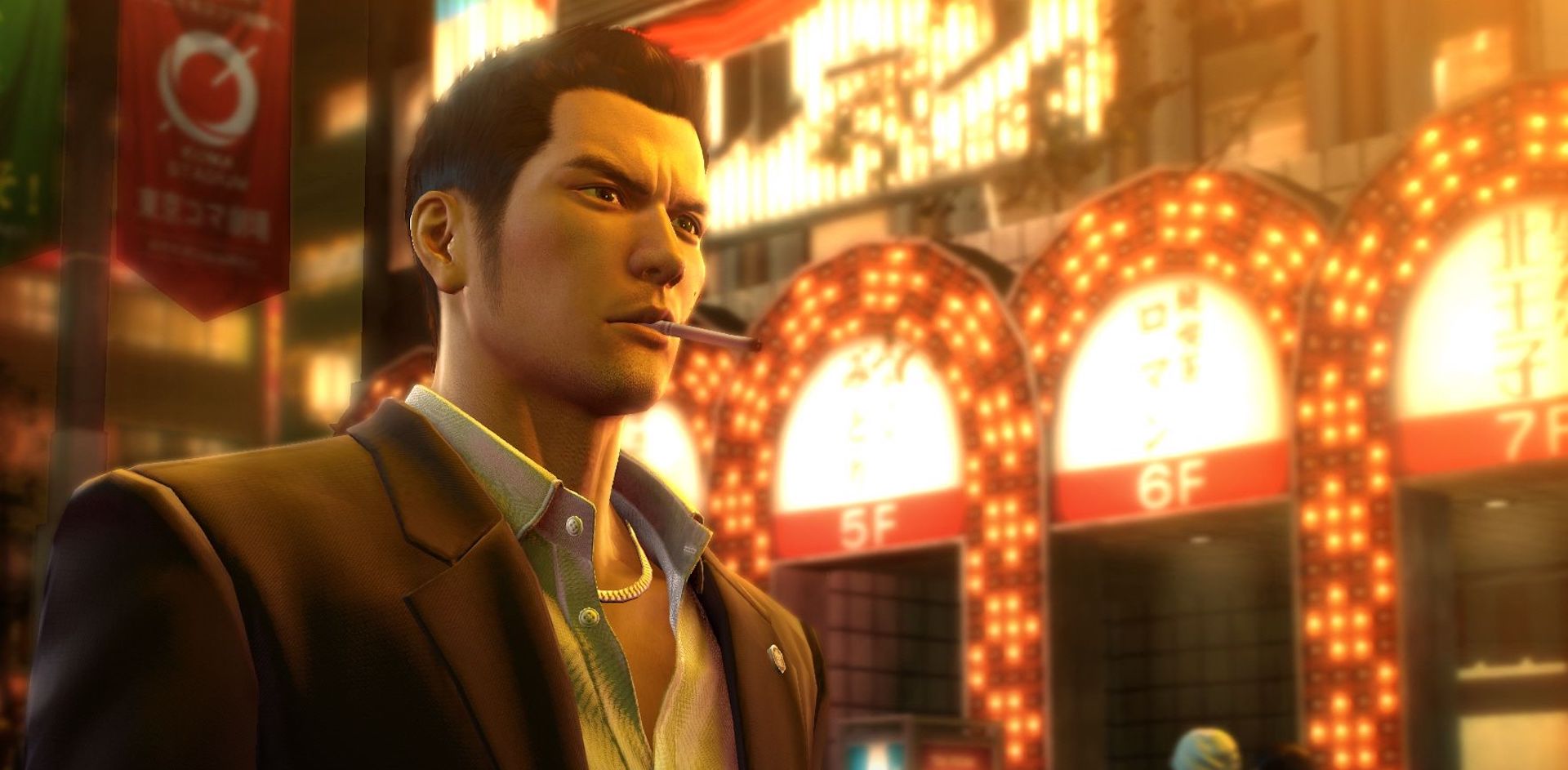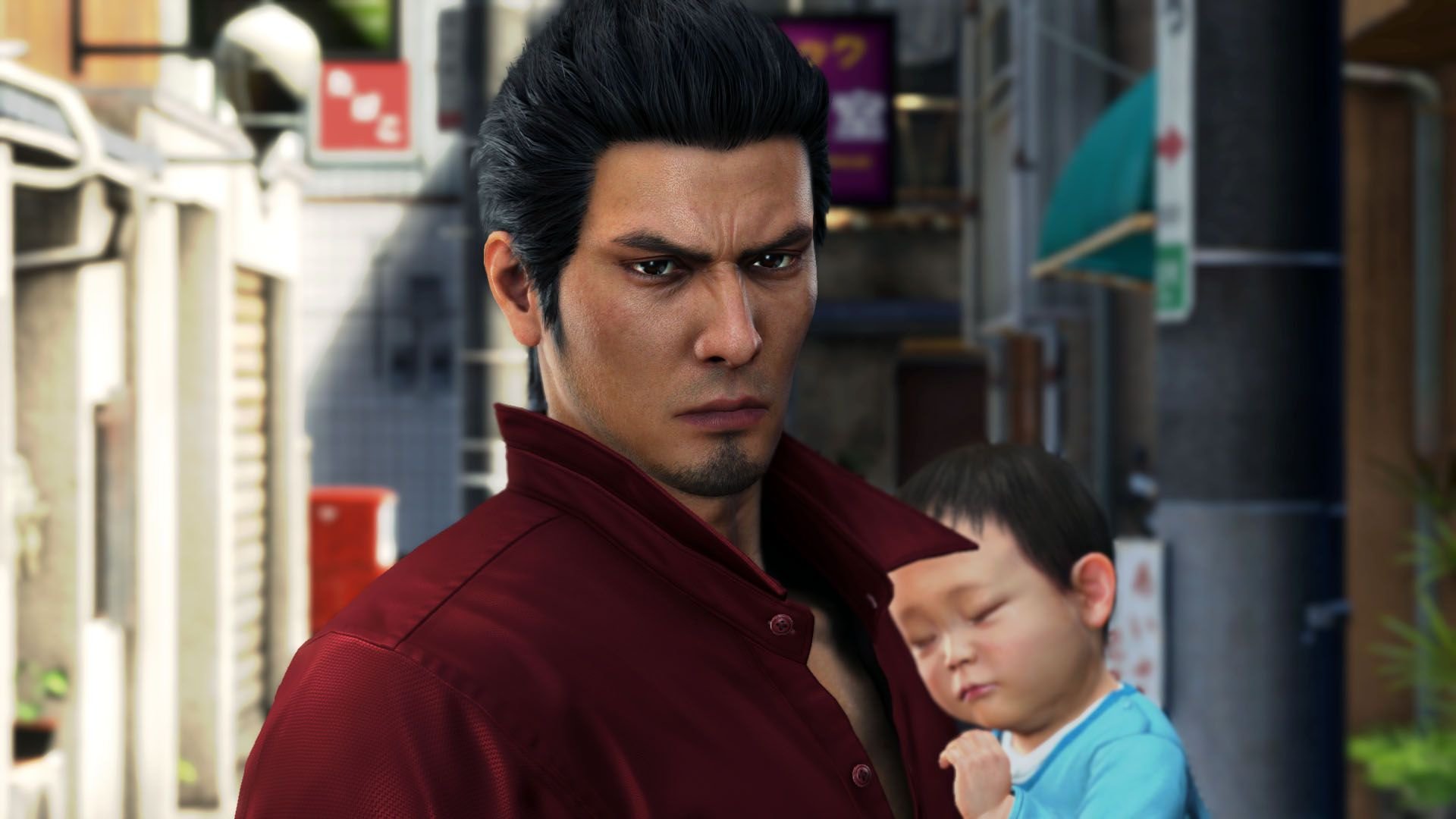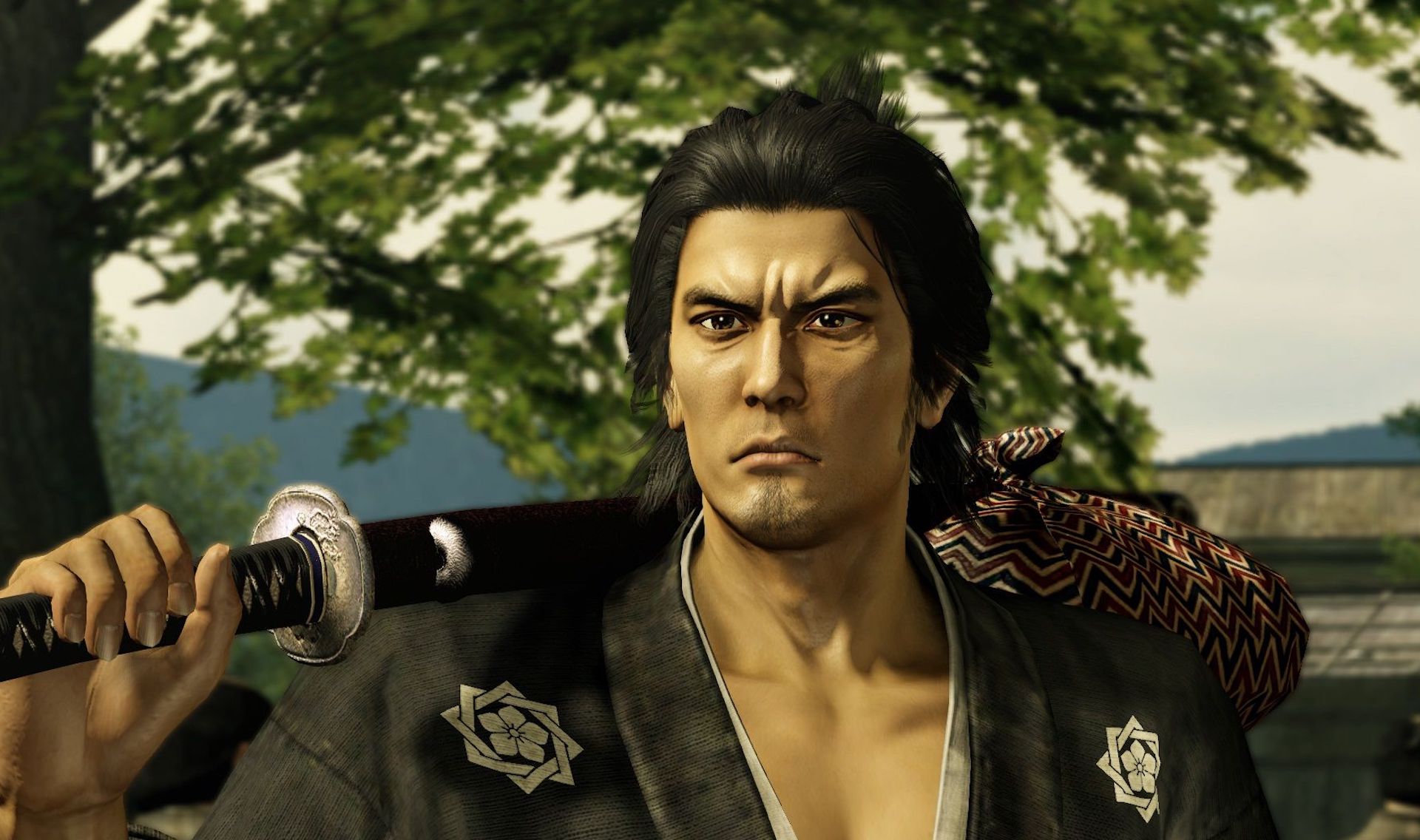A standoff in a Tokyo ally. The thug opposite an empty-handed Kiryu Kazuma is about to attack when a kitchen aid steps in, throwing two fresh leeks at Kiryu, who catches them and SLAP - SLAP - SLAP downs the thug with them. It’s as crazy as it sounds. It's Kung-Fu movie slapstick. And yet it is also peak Yakuza: games that effortlessly fuse top-grade storytelling with fine art direction, lacing it with bouts of highly peculiar humor. Somehow the development team behind Yakuza delivers games with immaculate story beats, supported by some of the best voice-acting in the business, yet can’t resist having Goro Majima, the second major character in the series, peek around a corner with his bad, eyepatch-covered eye too...

article
Yakuza: SEGA’s multi-colored soap opera
SEGA’s Yakuza games dazzle in unique ways.
Arjan Terpstra
02 Mar 2018 ⋅ 3 min read
Babysitting
And yet, much to the amazement of Western reviewers, the combination works. Just as merging fist fights with babysitting duties work in Yakuza 6. Or just how swapping important story beats for minigames in Karaoke parlors work, dropping players into rhythm games they have not asked for, but will enjoy anyway. In this respect, Yakuza games have a sum-is-more-than-its-parts kind design. It’s both reliant on its emotional arc and on characters full of personality and wit, and on chasing a roomba through the streets in search of a missing wedding ring. It is one part crime soap opera and one part short bursts of clean, dumb button-pressing arcade fighting. It’s honest and sincere in one part, pushing all the right buttons, and totally not in the next.
And yet, much to the amazement of Western reviewers, the combination works. Just as merging fist fights with babysitting duties work in Yakuza 6. Or just how swapping important story beats for minigames in Karaoke parlors work, dropping players into rhythm games they have not asked for, but will enjoy anyway. In this respect, Yakuza games have a sum-is-more-than-its-parts kind design. It’s both reliant on its emotional arc and on characters full of personality and wit, and on chasing a roomba through the streets in search of a missing wedding ring. It is one part crime soap opera and one part short bursts of clean, dumb button-pressing arcade fighting. It’s honest and sincere in one part, pushing all the right buttons, and totally not in the next.
Kierkegaard
This tonal shuffling may baffle Western audiences, who are potty-trained to think in set genres, forever channeling their inner Kierkegaard when reflecting upon media: it’s EITHER/OR for everything. You’re either modern or old fashioned. You’re either watching lighthearted comedy or momentous drama. Which is a very Western way of thinking about things, and one that excludes enjoying Japanese media. Generally speaking, Japanese culture isn't that worried about distinctions as the West is. ‘Modern’ and ‘old fashioned’ coexist as one thing - because, simply put, everything in Japan is both ‘modern’ (read: Western) and traditional (Japanese) at the same time. It's also a culture that values its slapstick: just check a kabuki play or Kurosawa flick.
In the end, Yakuza is a highly enjoyable hotchpotch of divergent things, brought to you as a sharp-looking game world, courtesy of the new Dragon Engine that renders Yakuza games in a crisp photo realism. Walk the bustling streets of Kamurocho, beat up a local gang and wander off into the quiet back alleys for a bit, humming this new song as you enter a karaoke parlor, and you’re simply living the Yakuza life - in its glory and its ridiculousness.
This tonal shuffling may baffle Western audiences, who are potty-trained to think in set genres, forever channeling their inner Kierkegaard when reflecting upon media: it’s EITHER/OR for everything. You’re either modern or old fashioned. You’re either watching lighthearted comedy or momentous drama. Which is a very Western way of thinking about things, and one that excludes enjoying Japanese media. Generally speaking, Japanese culture isn't that worried about distinctions as the West is. ‘Modern’ and ‘old fashioned’ coexist as one thing - because, simply put, everything in Japan is both ‘modern’ (read: Western) and traditional (Japanese) at the same time. It's also a culture that values its slapstick: just check a kabuki play or Kurosawa flick.
In the end, Yakuza is a highly enjoyable hotchpotch of divergent things, brought to you as a sharp-looking game world, courtesy of the new Dragon Engine that renders Yakuza games in a crisp photo realism. Walk the bustling streets of Kamurocho, beat up a local gang and wander off into the quiet back alleys for a bit, humming this new song as you enter a karaoke parlor, and you’re simply living the Yakuza life - in its glory and its ridiculousness.

